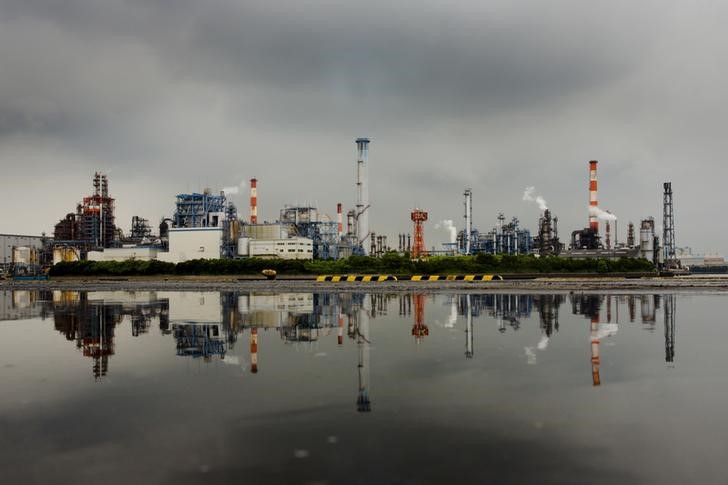TOKYO (Reuters) - Japan will seek to create a commercial hydrogen fuel supply chain by around 2030 to support reducing carbon emissions, Industry Minister Hiroshi Kajiyama said during a virtual hydrogen conference late on Wednesday.
Japan will try to speed up technological developments to help scale up a transportation system for hydrogen using ships by around 2030, Kajiyama said, pointing to a plan by Kawasaki Heavy Industries to ship liquefied hydrogen from Australia to Japan early next year for the first time in the world.
Kawasaki launched the world's first liquefied hydrogen carrier last December.
Japan unveiled a basic hydrogen strategy in 2017 aiming to import about 300,000 tonnes of hydrogen in 2030.
To support making hydrogen fuel more commercial, Kajiyama said his ministry has requested a hydrogen budget of $800 million for the next fiscal year, 20% more than this year.
"Given growing momentum in actions taken by many countries toward wider use of hydrogen, we have come to share a common understanding that hydrogen is an essential energy for decarbonisation," Kajiyama said.
Hydrogen has been touted as a clean alternative to fossil fuels. Now, as major economies prepare green investments, advocates are trying to push the niche energy into the mainstream.
In northern Japan's Fukushima prefecture, the world's biggest renewable energy-powered hydrogen plant, with 10 megawatts of capacity, was built in March.
Chiyoda Corp succeeded in a pilot project in June to ship hydrogen in a chemical form, methylcyclohexane, from Brunei to Japan as fuel for power generation.
Also on Wednesday, Toyota Motor (NYSE:TM) and eight other firms said that they will form a new nation-wide hydrogen association in December to promote hydrogen supply chains and global alliances.
